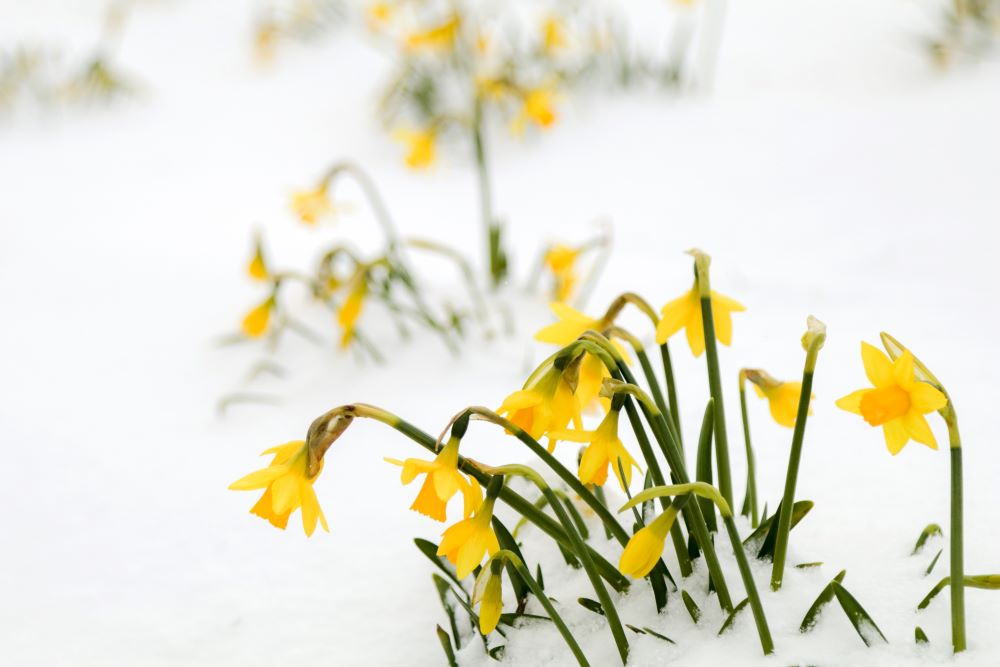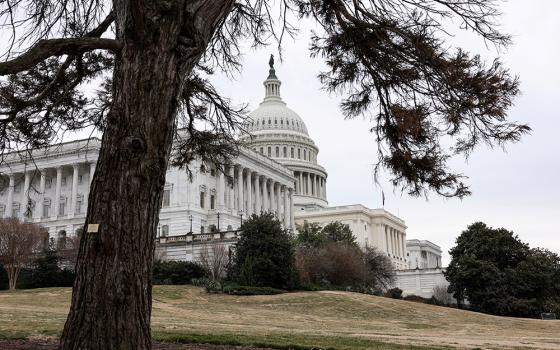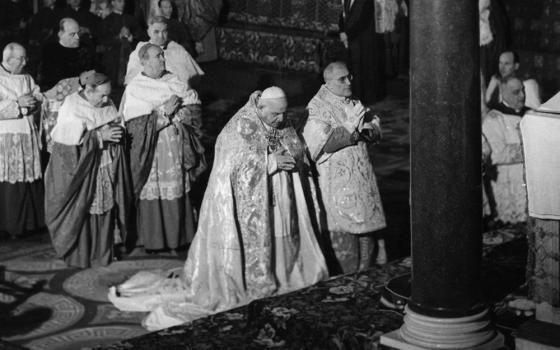
(Unsplash/Charles Tyler)
I grew up praying the Stations of the Cross every Friday in Lent through 12 years of Catholic school. Visual reminders of the suffering and death of Jesus were imprinted early on my mind, and then, in the Gospel of Mark, Jesus dies and is buried. Mark says nothing of the resurrection appearances. We hear that Jesus has gone before them into Galilee, and they would see Him just as He told them.
From age 6, I had to believe that He had risen, as we would, but there was no 15th Station in my parish church. Small wonder that some more modern churches add a 15th Station, perhaps because Christians did not want to be left at a stone-barricaded tomb.
These images came back to me last fall when we learned that my beloved niece Kelly, 50, died in her sleep of a heart condition the physician had said was "not life-threatening." When my sister called me, sobbing, early on Oct. 28, I could make out only two words: "Kelly died." Everything after that for the next few days was a blur.
We retrieved her body, brought her from Massachusetts to Pittsburgh and prepared the liturgy for the funeral. But seeing the grief-stricken face of my sister — who had lost her husband just three years ago on Thanksgiving, from the same heart defect — recalled to me the 13th Station, at which Jesus is taken down from the cross and placed in the arms of His Mother.
Advertisement
Death comes to us all. November began with two feasts of those who have gone before us, but I was not ready for this death. Kelly was a vibrant, funny, accomplished environmental engineer who loved the arts and was passionate about the environment. She spent her career fighting for clean water in her city. She was an advocate for justice, who collected friends the way some collect coins or stamps. I was angry with God for taking her from us when we had not yet come to terms with the sudden death of her father.
The Saturday of her burial, my family stood next to the grave and watched the workers lower the vault and blessed casket into the space provided. And we walked away. The day was perfect, warm for November. A brilliant blue sky, rare in our city, tried to lighten the mood, but it was futile.
The next day I noticed the box of spring bulbs I had purchased but had not yet planted. Since the day was still warm, I began to move back the leaves covering the garden, and set each bulb deep in the soil, pointed to the sky. Nothing I could have read or done that day would have had the same healing effect. Gardening has always reminded me of the life cycle. In spring, we plant and nurture, water and fertilize, and finally in summer we enjoy flowers and vegetables until fall. Watching the garden die is always melancholy, as is the first deep frost that turns my flowers to a gelatinous mess, and marks the end of the season.
Planting those bulbs reminded me of the Stations of the Cross and Mark's Gospel. We cannot see what will become of the bulbs we plant. They may freeze. Animals may feast on them before they have a chance to blossom. Yet we have faith that they will rise through the soil and break through the leaves that still cover the garden. They will be beautiful and — like us — they will die.
Some months have passed since Kelly's death. Today five inches of new snow cover the bulbs I planted in the fall. After heavy snow, a calm comes over the city. Traffic sounds are muffled. Sidewalks hold few pedestrians. Schools and offices are closed. We turn inward and yearn for spring. I think of my new bulbs. I remember Kelly.
Nature and gardening have made the 15th Station unnecessary for me. Like the early Apostles, I am asked to believe, even in the loss of a loved one, that Jesus has gone before me (and Kelly), and that we will one day see Him, "just as He told us." Living in that hope brings solace, but death will still break our hearts.






